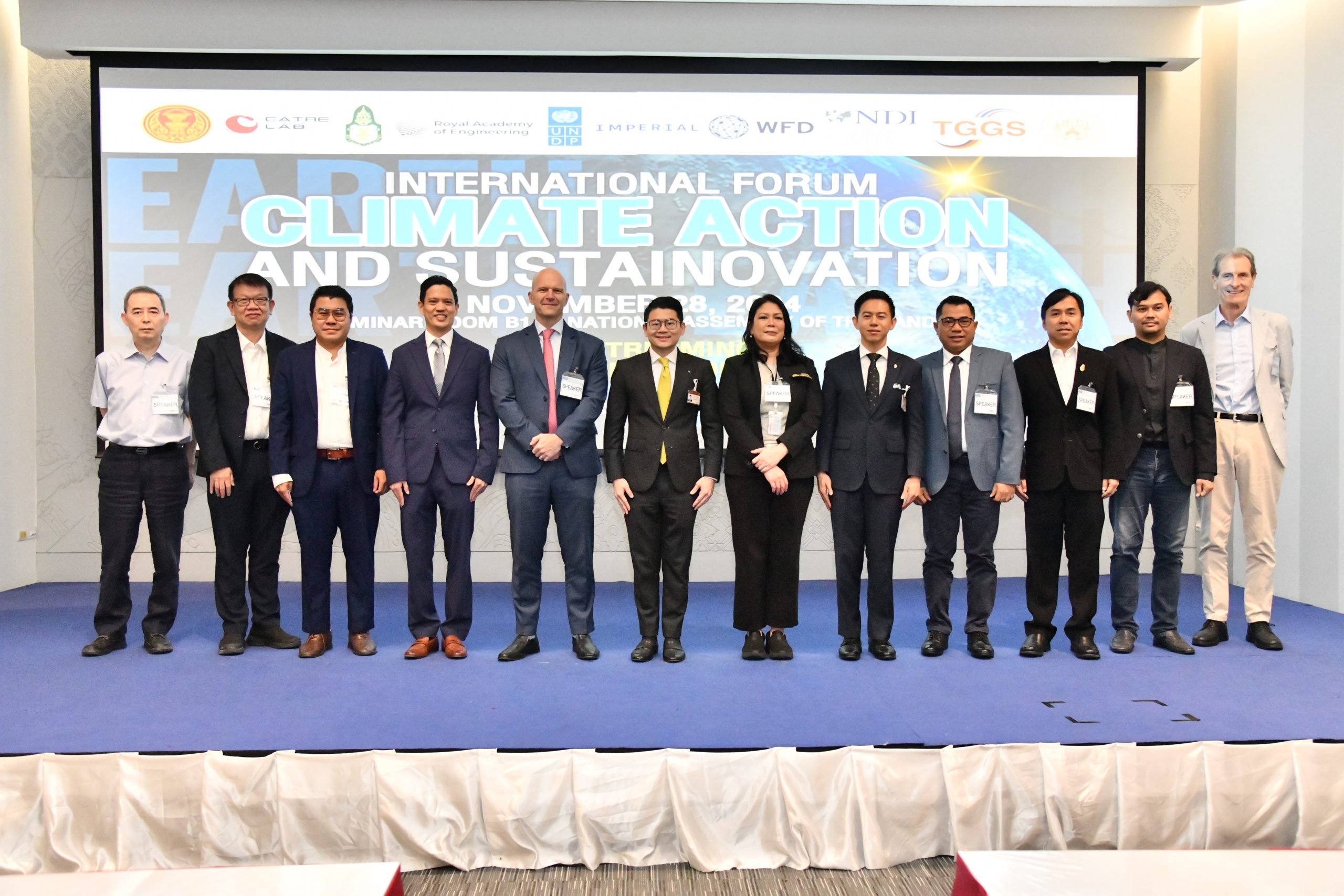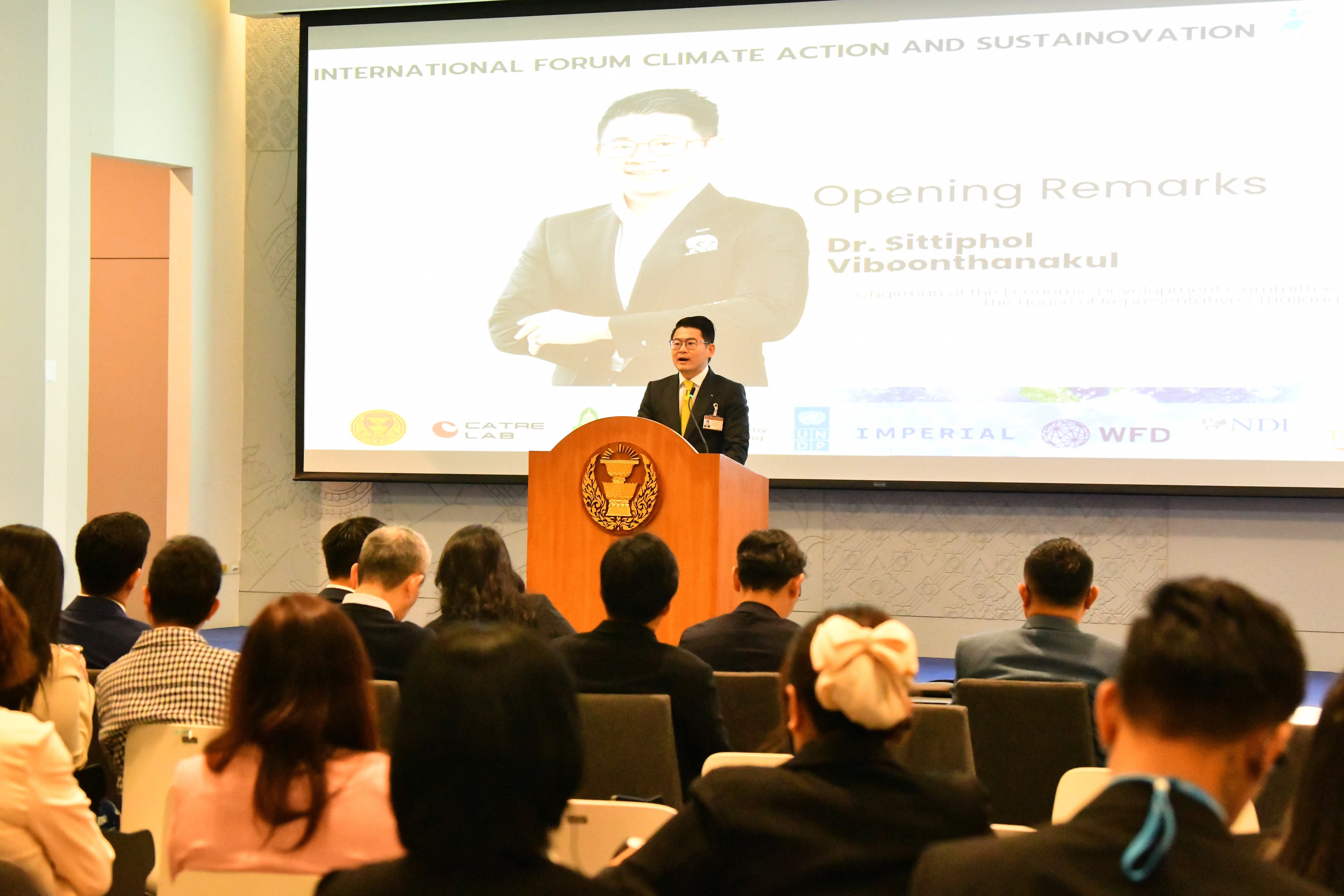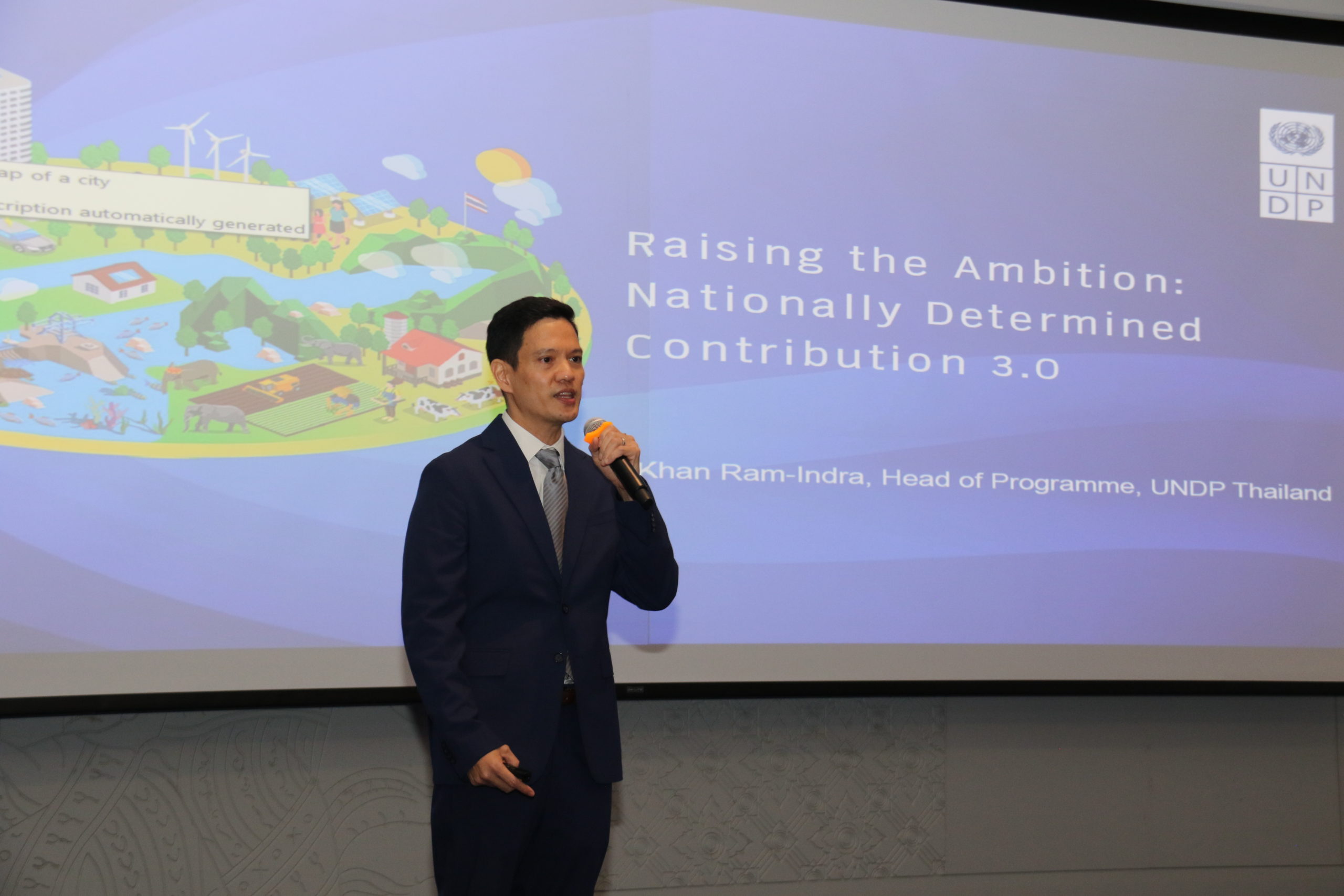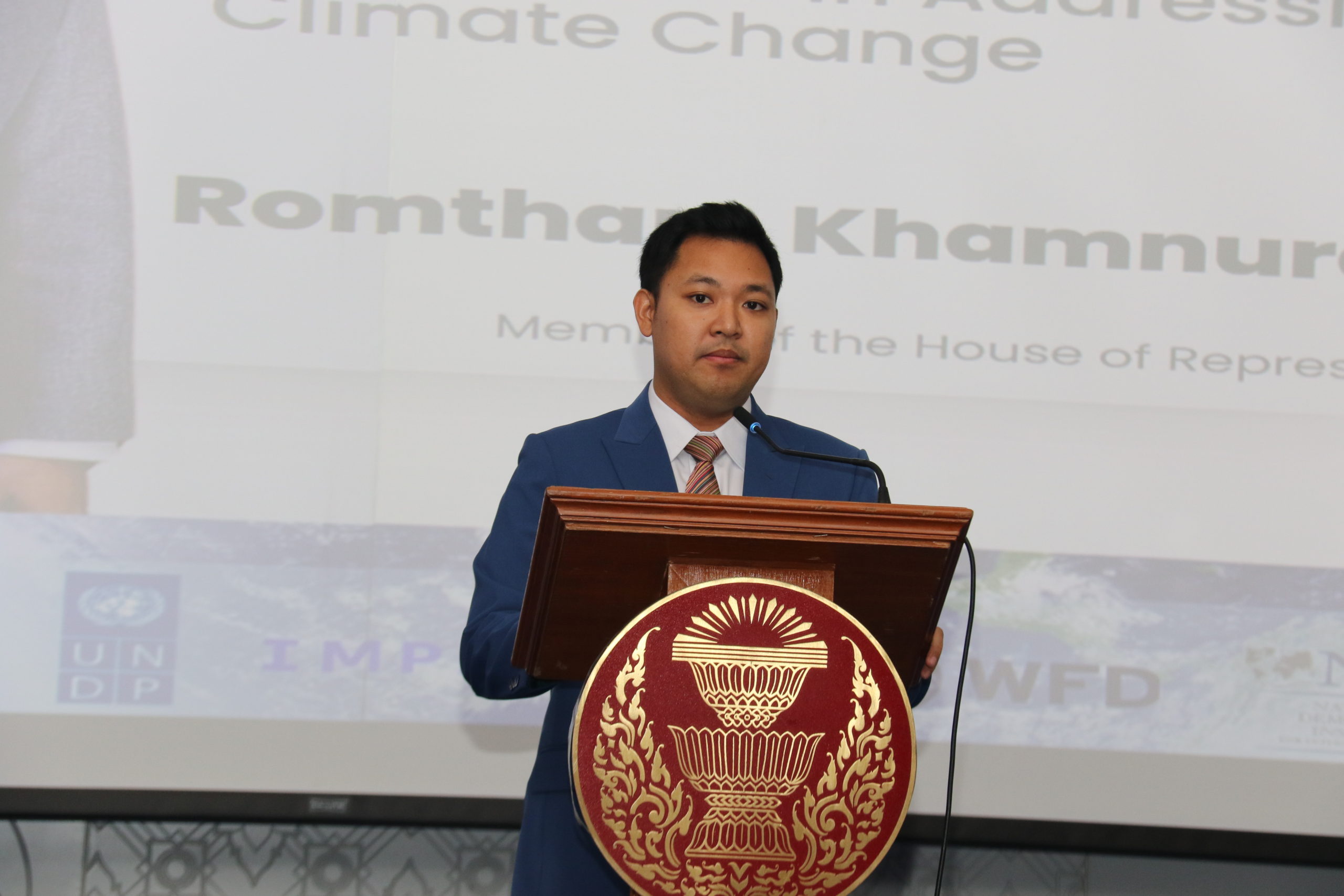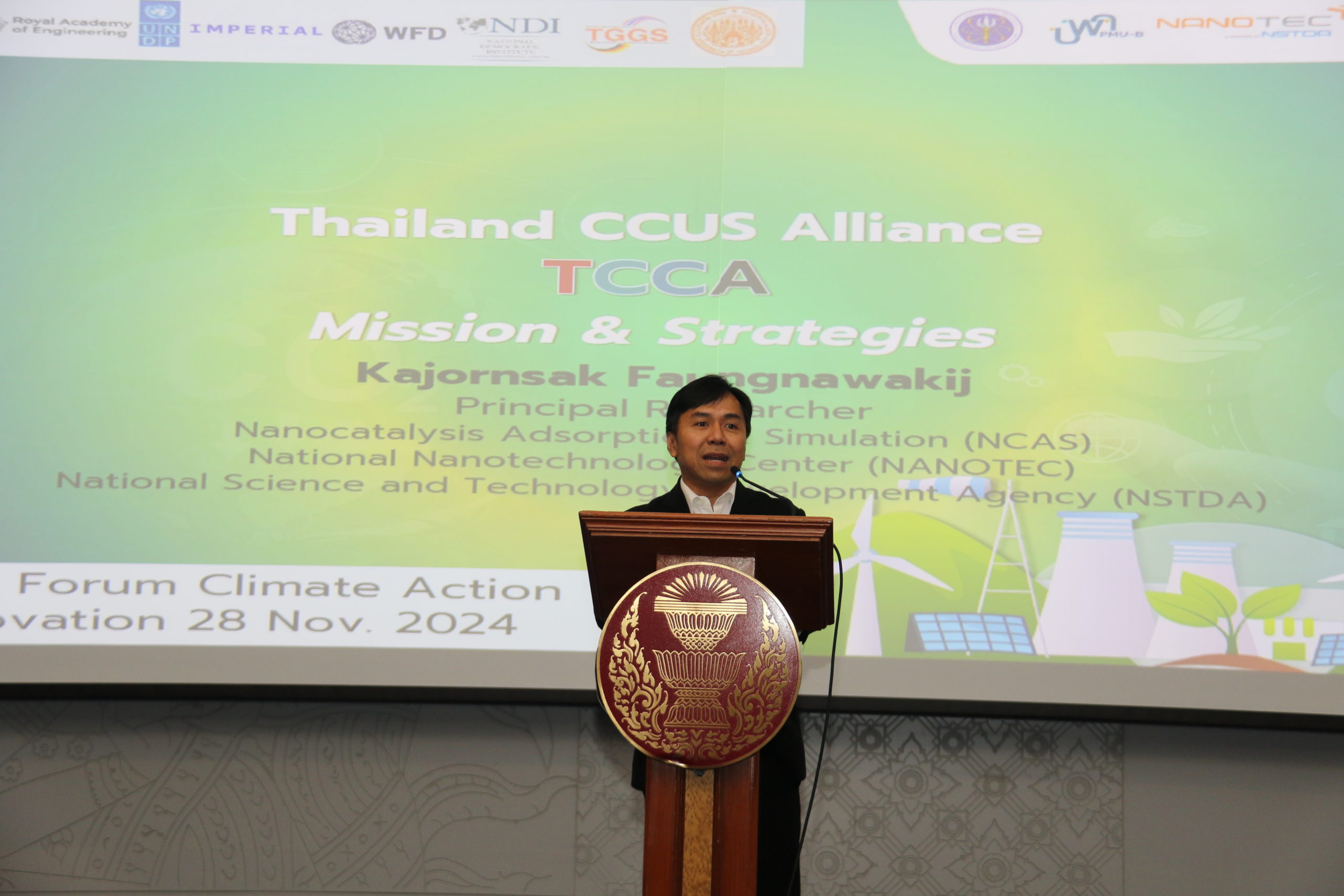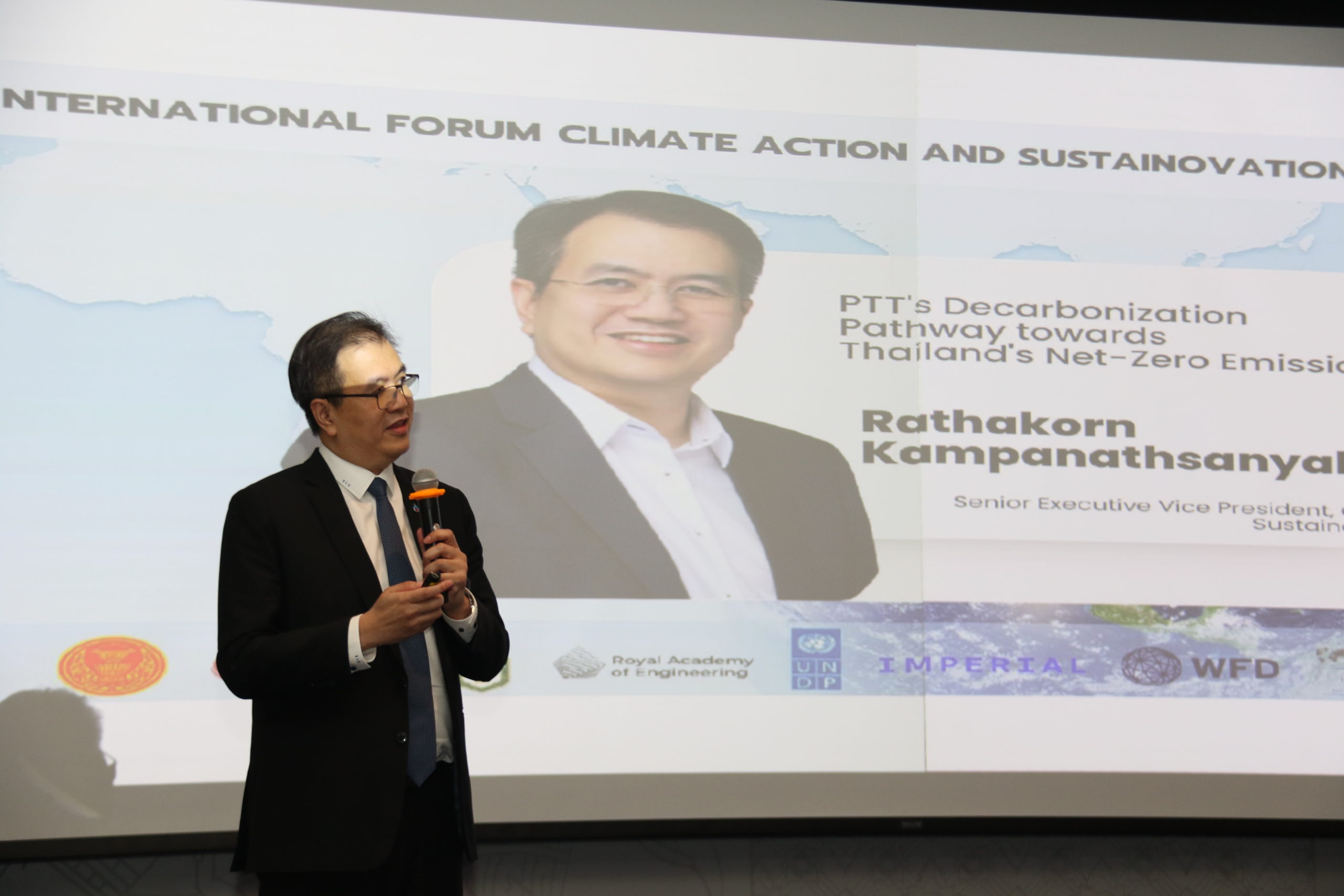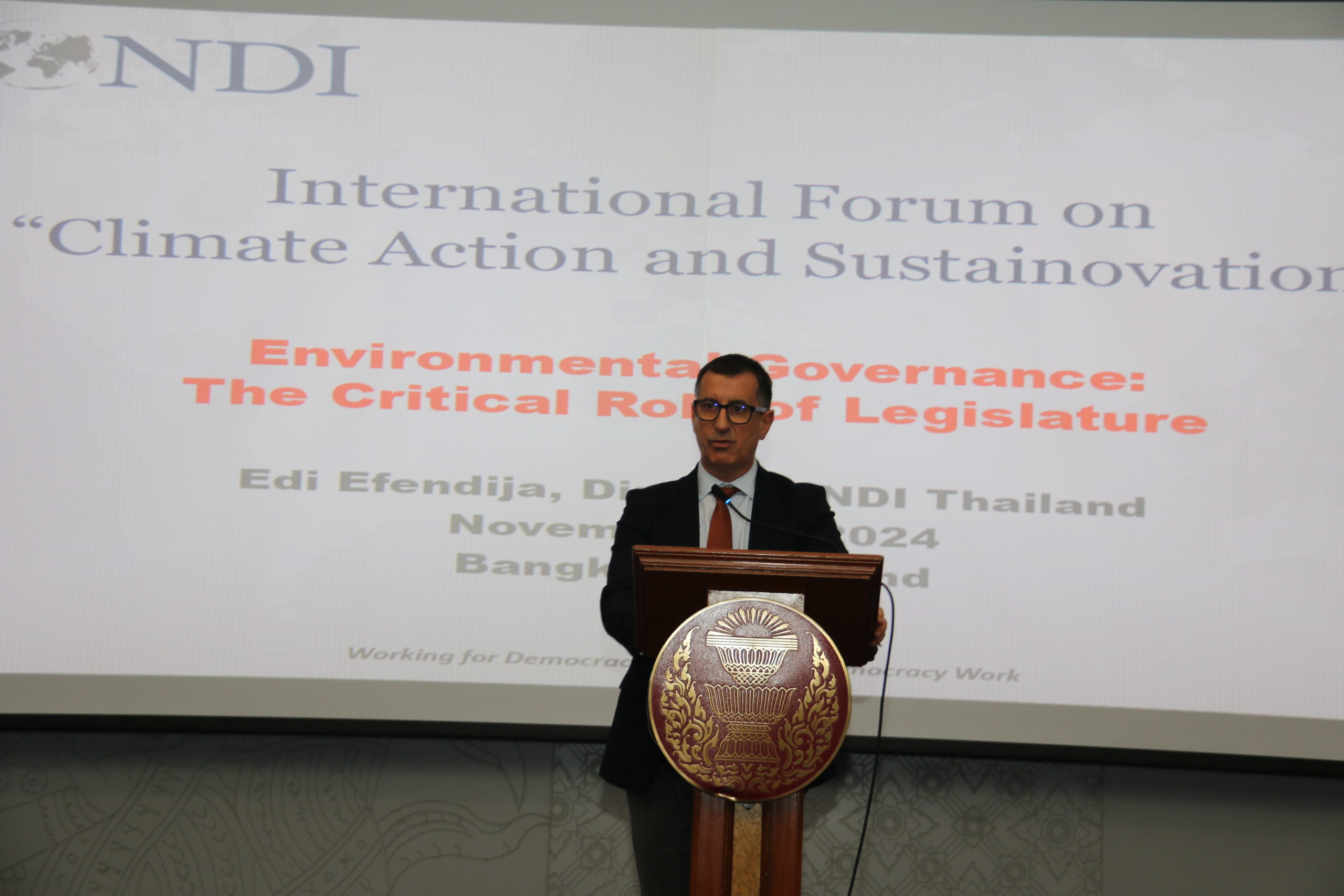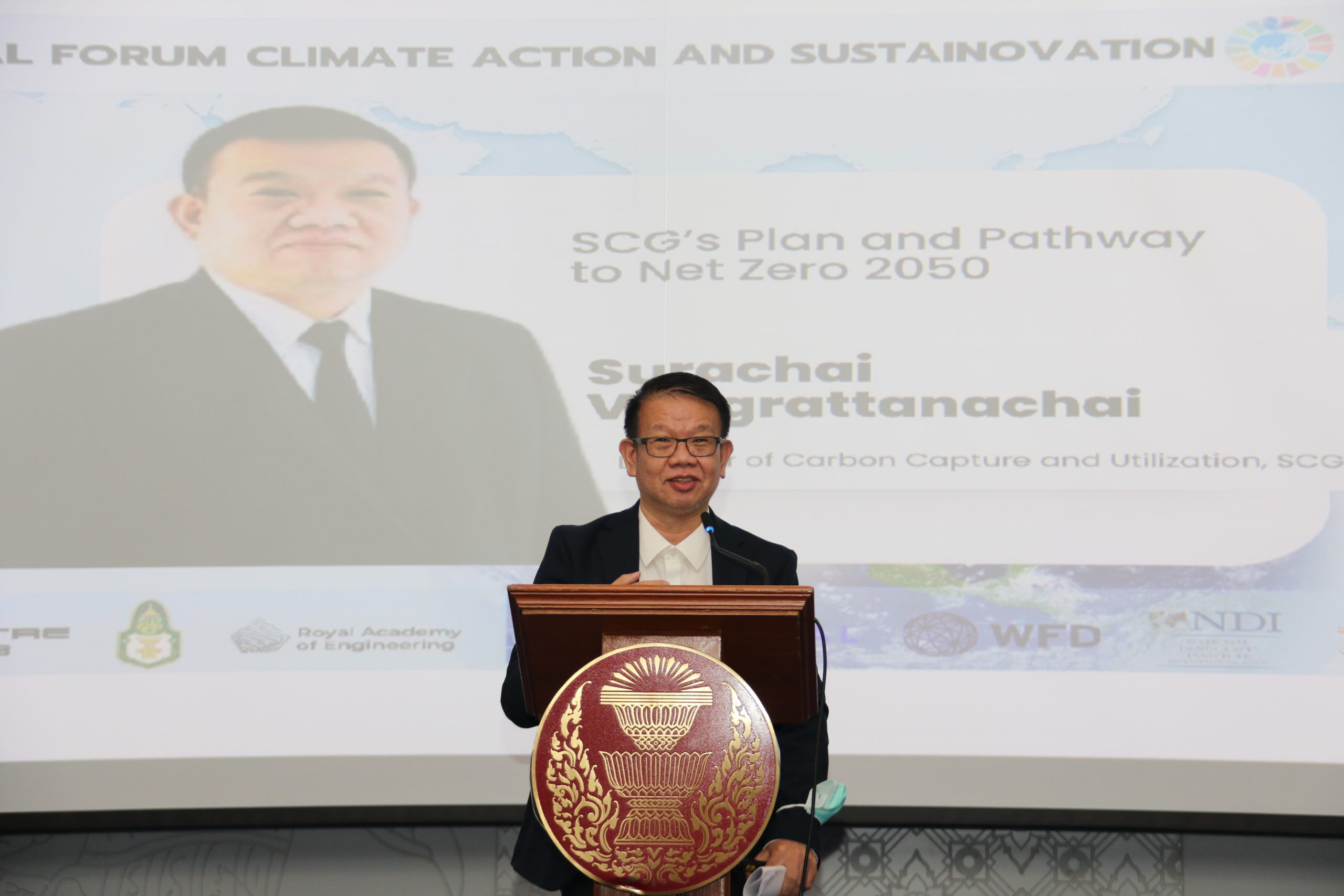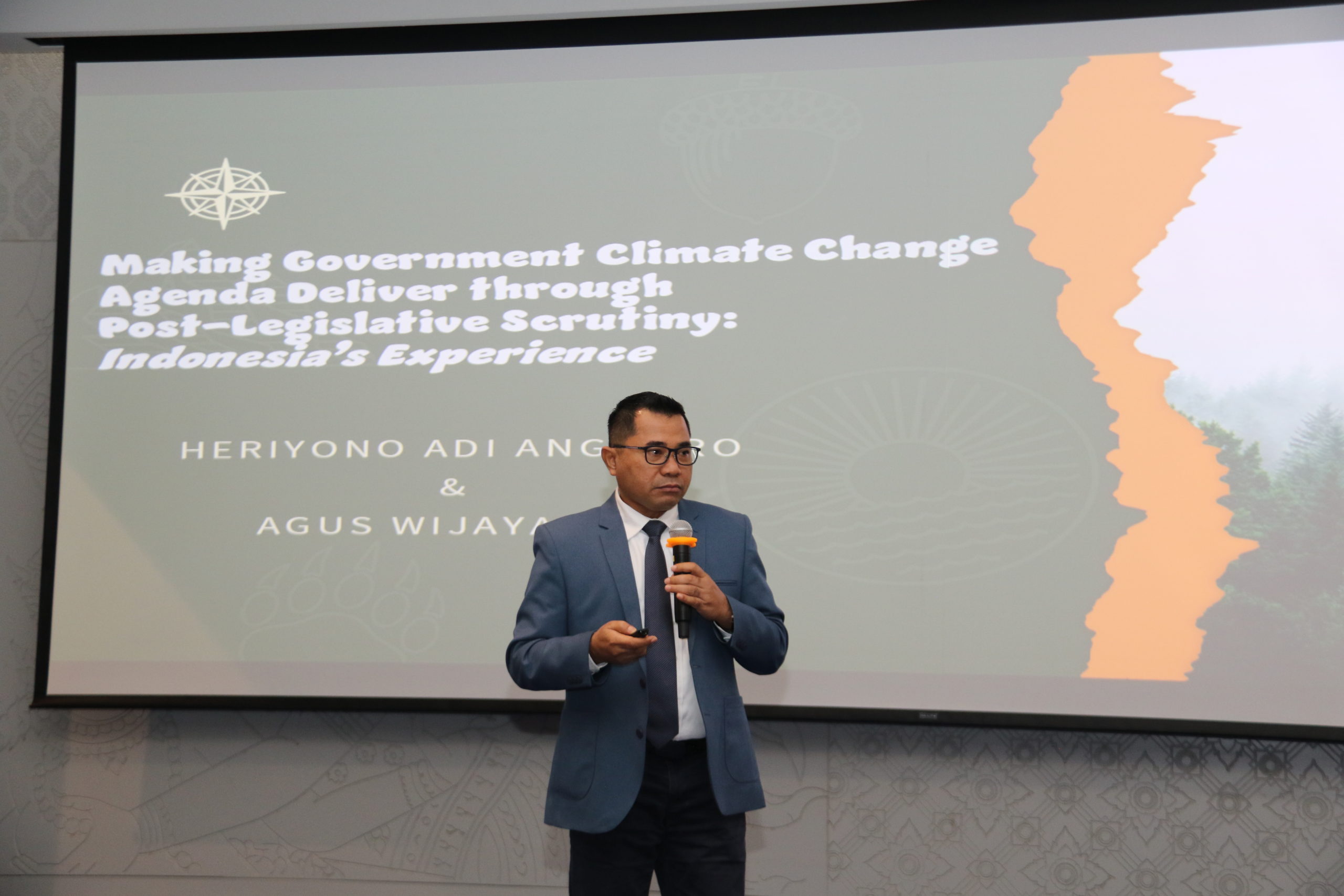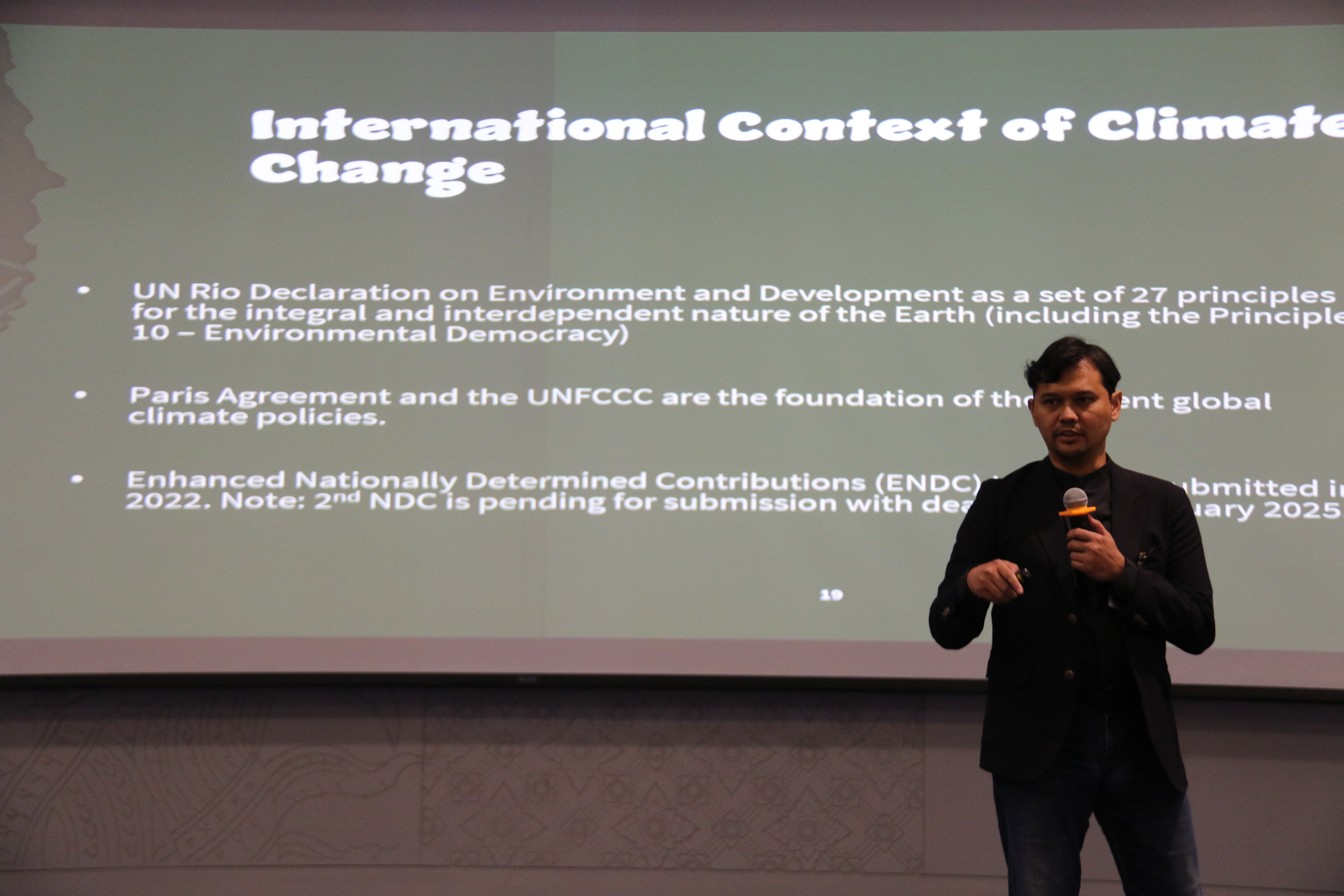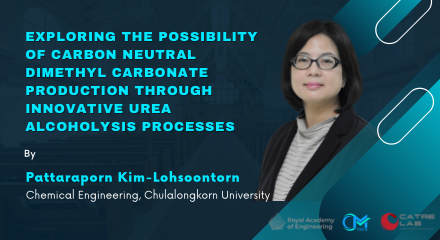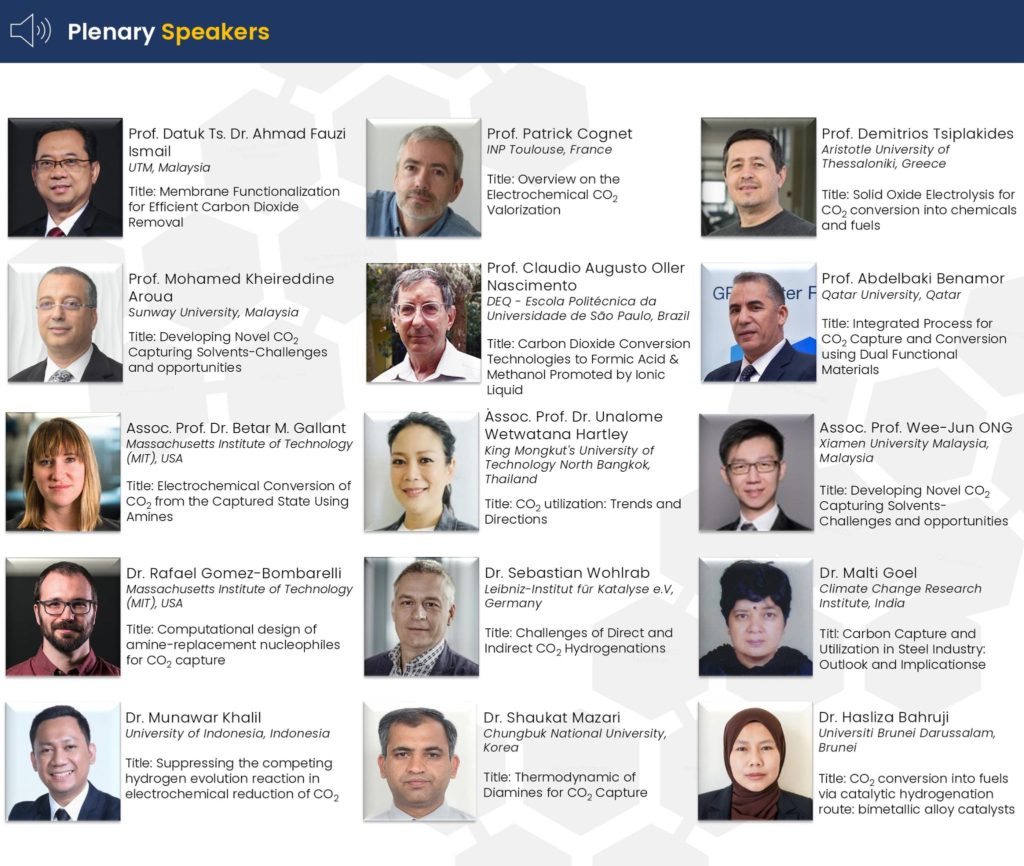Background:
Climate change is one of humanity’s most severe and complex challenges in the 21st century. It stems from global temperature increases, glacier melting, and rising sea levels, which have led to more frequent and intense natural disasters such as storms, floods, droughts, and PM 2.5 air pollution. Greenhouse gas emissions from human activities primarily drive these phenomena. The effects of climate change impact human livelihoods, food security, and ecosystems across all regions. This shift also affects agriculture, food production, water management, urban development, and public health, in addition to national economies, particularly in agriculture- and tourism-dependent countries like Thailand. Due to climate change, Thailand faces droughts, floods, and natural disasters, which reduce agricultural productivity, impacting farmers’ income and exports.
Socially, climate change worsens inequality, with the poor and vulnerable being the most affected due to their lack of resources and opportunities to adapt and recover from natural disasters.
Managing these impacts requires urgent action and collaboration at all levels—local, national, and global—to address the widespread effects on life, the economy, society, and the environment. Climate Action is an approach aimed at reducing greenhouse gas emissions and adapting to the consequences of climate change, with the main objective of protecting the global environment and promoting long-term sustainability. This includes carbon emission reduction, sustainable urban development, and promoting energy efficiency, as well as the pursuit of achieving Net Zero, where a country, organization, or system reaches net-zero greenhouse gas emissions by minimizing emissions and compensating through mechanisms such as afforestation, carbon capture technologies, or purchasing carbon credits.
In recent years, technological and innovative advancements have been recognized as key tools for addressing climate change and the associated disasters, giving rise to the concept of “Sustainovation.” Sustainovation, or innovation for sustainability, focuses on using sustainable technologies and innovations to reduce environmental impacts. It aims to create solutions to climate change while also generating economic opportunities and improving people’s well-being. Sustainovation also plays a crucial role in enhancing the capacity of countries to adapt to changing climates through renewable energy, sustainable urban development, and eco-friendly agricultural systems.
Furthermore, collaborative governance, involving cooperation among the government, private sector, civil society, and academic institutions, is another important approach for achieving shared goals in addressing climate change and global warming and promoting sustainability innovation. Collaboration across these sectors is key to tackling complex and transboundary issues such as environmental problems, social inequality, and economic development.
However, the management of climate change impacts must follow the principles of Environmental Democracy. This involves governing the environment through technology and innovation, while ensuring public participation in environmental decision-making and policy formulation. Environmental Democracy emphasizes equality, transparency, and accountability in managing natural resources and environmental issues, and is a key element in building social sustainability.
As such, the International Forum on Climate Action and Sustainovation has been organized as a platform for exchanging opinions, knowledge, and innovations related to climate change solutions. It is aim at fostering cooperation among sectors important to climate and environmental action, the development of sustainability innovations, economic growth, and the promotion of environmental democracy.
Objectives:
- To exchange opinions, knowledge, and innovations that lead to proposing solutions for addressing climate change.
- To create a network among relevant sectors that will help develop management strategies to reduce the impact of climate change and contribute to sustainable economic development.
Date, time, and venue:
- Date: November 28, 2024
- Time: 08:00 AM – 03:15 PM
- Venue: Seminar Room B1-2, National Assembly of Thailand
- Live streaming on Facebook: Parliamentary Academic Support Office, King Prajadhipok’s Institute.
Targeted audiences:
- Members of parliament and parliamentary personnel
- Government agencies
- Academics with relevant interests
- Private sector representatives
- Interested members of the general public
Co-Organizers:
- King Prajadhipok’s Institute
- Economic Development Committee, The House of Representatives of Thailand
- UK Royal Academy of Engineering
- United Nations Development Programme (UNDP)
- Westminster Foundation for Democracy, UK Foreign Office
- Imperial College London, United Kingdom
- Catalysis and Reaction Engineering Laboratory, Sirindhorn International Thai-German Graduate School of Engineering (TGGS), King Mongkut’s University of Technology North Bangkok
Expected Outcomes:
- Establishment of networks among relevant sectors, leading to improved management strategies for mitigating the effects of climate change and promoting long-term sustainable economic development.
- Development of policies or legislation related to climate change solutions.
More information
unalome.w.cpe@tggs-bangkok.org
02 555 2000 ext. 2930
